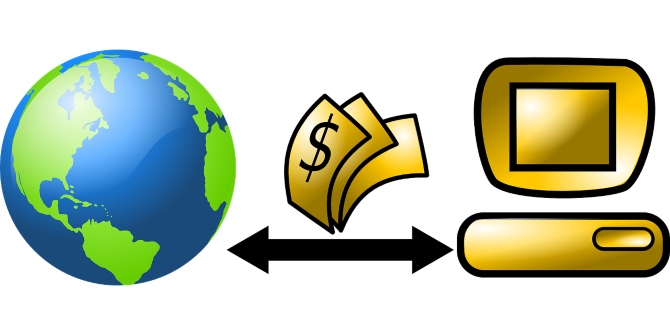A history of high inflation and currency controls can explain the popularity of digital currencies in Argentina, where many bypass the national currency altogether using cryptocurrencies via electronic payment systems. This also helps explain why Argentinians elected Javier Milei, a self-proclaimed anarcho-capitalist, as president. However, Antulio Rosales and Jonas Bugtene Boulifa write that some of Milei’s policies may also create challenges to the country’s crypto ecosystem.
Javier Milei was elected president of Argentina with a wide margin against the runner-up. A controversial economist who had long rallied against the political establishment, Milei self-identifies as an anarcho-capitalist. His strong mandate came from a series of disillusioned groups from various socio-economic strata, but especially from an increasingly disenfranchised, young male population. With an economy reaching hyperinflation and lagging growth, and a political elite widely seen as corrupt, many confided in his anti-system rhetoric.
Milei’s rise has come in tandem with the spread of alternative solutions to chronic economic problems. Among them is the spread of digital currencies, more commonly used in Argentina than in any other place, with a wide range of services offered. Digital wallets with connected debit cards make it possible to own and spend cryptocurrencies using electronic payment systems.
We did field work in Buenos Aires in 2022 and 2023 and found that for many disillusioned Argentinians, access to cryptocurrencies and stablecoins (which are tied to another asset class such as the US dollar) has become attractive because it allows them to connect to global labour markets. Either by working independently as freelancers or by being employed in a remote role for a foreign company, they escape the peso.
This is not a phenomenon linked merely to crypto fandom. For a long time, it has been common for Argentinians to open bank accounts in US dollars, and to experiment with different monetary alternatives to the peso in the face of a crisis. The rise of cryptocurrencies makes participating in global markets an easier and more appealing opportunity, especially when barriers to foreign cash are erected by the government.
This resonates well with one of Milei’s key narratives. He wants the economy to be open to the exchange of capital across borders. For young Argentinians who have little faith in the capabilities of their own state, at least in the monetary sphere, being connected with the rest of the world is important, and fostering cross-border relationships is one way to achieve this.
The confluence of a self-proclaimed anarcho-capitalist leader and the rising popularity of techno libertarianism may explain part of the grassroots support for Milei. But if some of Milei’s policies and views become real, this overlap may also create challenges to the country’s crypto business ecosystem, which has expanded significantly in recent years. Here we explain why.
Unhappiness with the peso
The attractiveness of crypto-related products in Argentina comes as a result of a long history of uneasiness with the country’s legal tender. Due to what seems to be a never-ending state of economic crisis, citizens have learned the hard way to save money outside the national currency.
It is common for middle-class Argentinians to adopt the dollar as a store of value and means of exchange. Transactions in property markets are, for example, often carried out in dollars. The Argentine economy is somewhat of a dual-currency system and has been so for decades. This predisposition to mistrust the peso is compounded by a growing crisis in the most recent model of economic policymaking of past Kirchnerist governments. This model was supported by broad emphasis on social policies. A repressed exchange rate sought to benefit certain industrial sectors and consumers, but ultimately generated a series of distortions, including a sizable black market for currency exchange and increased inflation.
This history explains in part why Argentinians are quick to adopt new forms of money, as proponents of cryptocurrencies argue they are. As part of our research has shown, monetary instability and currency controls are a formidable base for the expansion of the cryptocurrency ecosystem, especially in the form of wallets and exchanges. Crypto exchanges proliferated in the country as a response to currency controls imposed under President Alberto Fernández and the increasing hike in inflation rates.
Rise of controls, rise of escape routes
According to Ignacio Carballo, a local fintech expert we interviewed, interest in bitcoin “was initially circumscribed to an ideological group” with anarcho-capitalist views. Trust in the cryptocurrency grew around 2011 during the first set of currency controls imposed by the government of Cristina Fernández de Kirchner.
Money has been considered trustworthy precisely because it is backed by government. In the case of bitcoin, it is the absence of state control that makes it valuable for its supporters. Cryptocurrencies later took root in the minds of middle-class Argentinians seeking protection from inflation while avoiding the obstacles of currency distortions. Bitcoin’s penetration in the country is concentrated in trading and exchange, with significant downstream linkages in wallets, exchanges and bridges with traditional financial systems.
Some strong ideological advocates, so-called “bitcoin maximalists”, continue to support bitcoin while rejecting linkages with traditional banks and other cryptocurrencies. However, regular Argentinians are less interested in these ideological disputes and are guided by pragmatic reasons. Seeking refuge from the peso is the number one concern, making stablecoins the most popular of cryptocurrencies.
Escaping the local currency is made possible by unofficial brokers dealing in both physical and digital US dollars. In this parallel market, dollars are bought and sold at a much higher price than at a traditional bank. Many professionals who are connected to the global economy seek alternative payment forms through exchanges that allow them to operate outside the radar of local tax authorities. During the administration of the previous president, draconic tax brackets would extract significant sums from professionals making as little as 400 USD per month. Using crypto wallets to receive their pay served as a workaround for this and allowed them to leverage inflation in their favour, exchanging smaller sums of money by the day and keeping most of their earnings in stablecoins or finding their way to the US dollar.
Similar conditions in the labour market have encouraged the expansion of laboratories in crypto ecosystems. Skilled but underpaid human capital facilitated the country’s involvement in the fintech market, on a par with top economies in the region. Notable examples of programmers working on generating 3.0 platforms include Decentraland, electronic wallets such as Muun and Lemon, and OpenZeppelin, a smart contract system that has been adopted by large crypto exchanges such as Coinbase.
Milei: foe or ally?
It would be easy to assume that a tacit alliance between crypto entrepreneurs and Milei enthusiasts would emerge. While there is plenty of enthusiasm in the crypto business world with Milei’s promises, pro-market stances and more iconoclast image, the new government’s platform may undercut some of the conditions that have allowed the rise and strength of these markets.
It remains to be seen whether competition between currencies would reduce the appeal of stablecoins. One of the main problems with using the dollar as a means of payment in Argentina today is limited divisibility. If/when people are allowed to hold and spend US dollars freely via debit cards, that obstacle would be removed.
Milei promised to ditch the central bank altogether and adopt the US dollar to solve the inflation problem and limit government debt. Nonetheless, he has recently walked back this idea, not least due to institutional limitations in Congress. Even so, he has hailed the free floating of the peso vis-à-vis the dollar, which would undermine one of the basic incentives of the crypto market’s existence in the country: the exchange rate differentials that create arbitrage opportunities.
At a more philosophical level, Milei is committed to monetary plurality and the free competition between currencies. The idea stems from the Austrian school of economics, with which he associates. While his platform and discourse are seemingly liberal, it is also infused with conservative undercurrents that promote a strong military force. Milei’s fierce anti-leftist views include rejecting public higher education, which he argues largely indoctrinates students into the causes of socialism. Last April, Argentinians organised the country’s largest public demonstrations in support of public universities.
A potential clash with the base of the crypto world may emerge here. Many engineers, programmers and entrepreneurs we interviewed said that the country’s public quality education has contributed to the unique spread of cryptocurrency solutions in the country. Milei, on his part, has suggested that the public schooling system should be replaced with one where parents receive coupons and freely select between private providers of education. This reveals a deeper paradox of cryptocurrency support: while it purports to defend the expansion of markets and individual freedom, it relies heavily on state action, including forms of protection and institutional capacity, or by omission through distortions and sanctions.
In the Argentinian case, the rise to power of a self-described libertarian may sit at odds with the identity and source of success of some of his own libertarian base.
- This blog post draws from the authors’ papers Paper promises: The effects of inflation on social life in Buenos Aires, Argentina and Poor miners and empty e-wallets: Latin American experiences with cryptocurrencies in crisis.
- This blog post represents the views of the author(s), not the position of LSE Business Review or the London School of Economics and Political Science.
- Featured image provided by Shutterstock.
- When you leave a comment, you’re agreeing to our Comment Policy.





